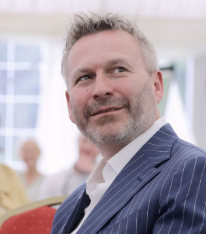Six Quick Things About Four Great Schools
Independent Thinking Founder Ian Gilbert reports back from the front line
Last week, our Ian Gilbert was fortunate enough to visit Healing Academy near Grimsby and then three primary schools in and around Cheshire and the Wirral.
What he saw both excited and reassured him.
What excited him was not only the innovative practice going on, especially in the primary schools (all part of the Cheshire Academies Trust network of primary schools), but also the quality of the leadership in all four schools.
The Importance of Team
While each school was different and at different stages of its own journey, leadership teams (‘Together Everyone Achieves More’) in all schools had often worked quickly to make the school safe, welcoming and successful through a change to the culture that was rooted in compassion, community and challenge.
What reassured him was not only the motivated, articulate and ambitious children he saw in all schools and all key stages but the way in which previous state-sanctioned coercive approaches to behaviour had been thrown out in favour of empathy, kindness and community.
And to great effect.
The Fewer the Rules, the Better the Behaviour
Here are Ian’s Six Quick Things from his visit to Healing Academy, a secondary school just outside Grimsby. After several years under the cosh of a large, faceless, Draconian MAT, there was a sense that everyone – teachers as well as children – could actually enjoy their time at school again and do well. 
1. If your school values don’t include compassion for the whole school community, go back to the drawing board
2. Draconian leadership is not leadership
3. ‘Flexible consistency’ is a humane approach to behaviour management that starts with seeking to understand
4. The fewer rules, the better the behaviour
5. Your students notice when you find your smile again
6. At some point, more and more teachers in England are going to look back at what happened to them in name of ‘standards’ and say, ‘What the hell was that all about?’
Above All, Compassion
These are Ian’s Six Quick Things from his visits the following day to Boughton Heath Academy and then to Mill View School, both in Chester. 
1. Don’t label neurodiversity, celebrate it
2. With the right inspector, Ofsted can be great CPD
3. Don’t reward; celebrate. Don’t monitor; notice. Don’t do to; do with
4. It matters that your colleagues do it, not how they do it
5. Time spent each day on the children’s ‘Zones of Regulation’ is time saved every day on behaviour
6. Above all, compassion
It is Possible to (insert name of dubious politician of your choice)-Proof Your Children!
And here is his Six Quick Things overview of his visit to the imposing Woodchurch Academy on the Wirral.

1. Improve behaviour and achievement by making your curriculum both challenge rich and compassion rich
2. Bring every aspect of your curriculum back to the local. And the global
3. Memorising facts has its place but never mistake it for a curriculum
4. Don’t judge others by your standards
5. Punishments can make everything worse
6. It is possible to (insert name of dubious politician of your choice)-proof your children!
A Brain-Friendly Approach
One aspect of teaching and learning that unites these three wonderful primary schools is the curriculum that guides their practice to various degrees. Called ‘Learning Without Limits’, it has grown out of ‘Expeditionary Learning’ (check out XP School in Doncaster for example) and, according to our resident paediatric neurologist Dr Andrew Curran, is the most brain-friendly education model he’s come across.
There Is Always Another Way
Ian is in a privileged position to visits schools all over the world which means that, at a time when loud voices are insisting teaching and behaviour must fit their preferred model, he can declare with confidence, there is always another way. [ITL]

Ian Gilbert
Enjoy a free no-obligation chat.
Haggle a bit. Make a booking.
Call us on +44 (0)1267 211432 or drop us a line at learn@independentthinking.co.uk.

About the author
Ian Gilbert
Ian Gilbert is an award-winning writer, editor, speaker, innovator and the founder of Independent Thinking. Currently based in Finland, he has lived and worked in the UK, mainland Europe, the Middle East, South America and Asia and is privileged to have such a global view of education and education systems.